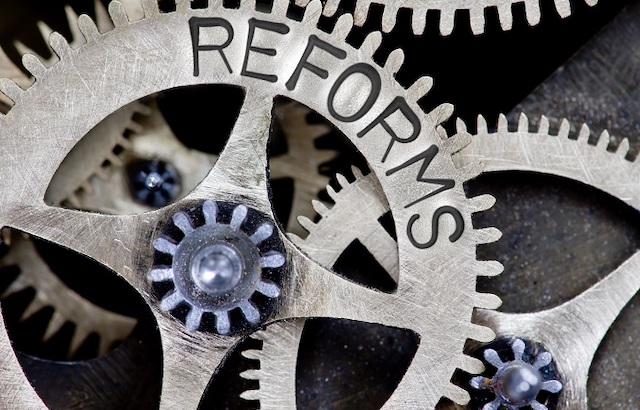The current structure of the money purchase annual allowance (MPAA) has come under fire as more Brits tapping into their pension pots to cover the rising cost of living are being caught out by the limits.
Tom Selby, head of retirement policy at AJ Bell, wrote to chief secretary to the treasury John Glen urging him to reform the MPAA – which significantly limits a person’s annual contributions from £40,000 ($48,000, €45,000) to £4,000 when they access their pensions.
In his letter, seen by International Adviser, Selby said: “There is a growing body of evidence that the number of people accessing their pensions in response to inflationary pressures is rising.
“The most recent set of retirement income statistics from the FCA show the number of retirement pots accessed for the first time in 2021/22 rose by 18%, from 596,080 to 705,666. HMRC data, meanwhile, tells us £3.6bn of flexible pension withdrawals were made between 1 April and 30 June 2022 – a 23% increase compared to the same period in 2021. This is unsurprising given CPI inflation was rising during that period and stood at 10.1% in September.
“What’s more, many over-55s will be under pressure not just to pay their own bills but to provide financial help to relatives of both younger and older generations. What’s more, the Bank of England is forecasting a substantial increase in the unemployment rate in the coming years – from 3.4% in Q4 2022 to 6.4% in Q4 2025 – further pressuring people’s already squeezed incomes.
“Punishing those who access their retirement pot flexibly with a swingeing cut to their annual allowance is deeply unfair and will leave many hamstrung when looking to rebuild their pension after this crisis.
“Some of those affected will also find themselves in a position where they need to make up for lost time. Savers in their late 50s, in particular, risk being caught in a pensions ‘no-man’s land’, having joined the workforce at a time when defined benefit (DB) provision was being phased out in the private sector and being automatically enrolled into a workplace pension too late in their lives to build a fund sufficient to meet their retirement needs.
“This means they are more likely to need to contribute significant amounts to their pension as they approach retirement to make up for years when they have failed to save enough. The MPAA severely restricts their ability to do so, meaning there is a greater risk they will eventually fall back on the state.”
No change
In the treasury’s response to Selby, seen by IA, economic secretary to the treasury Andrew Griffith admitted government data shows that a quarter of over-55s made annual contributions exceeding £4,000 a year in 2020-21. The number includes those who hadn’t already accessed their pension, he explained.
But Griffith rejected scrapping or even changing the way the MPAA works.
“Across the population of occupational pension savers more broadly, median annual defined contribution pension contributions were around £2,000 in 2020/21,” he added. “These rules therefore minimise the extent to which there is a continuing opportunity for individuals to reduce their tax bill in a way that is not consistent with the spirit of the pensions tax system.
“Other methods to control recycling, such as restricting the tax-free lump sum, were considered when the flexibility provisions were being introduced. However, stakeholders favoured the money purchase annual allowance and the government believes that this is a simpler and more appropriate method than any alternative.”
Is it necessary?
Commenting on Griffith’s response, Selby said: “There is mounting evidence that squeezed savers are being forced to turn to their pension pots to make ends meet during the cost-of-living crisis.
“In the first three months of the 2022/23 tax year, for example, over half a million people withdrew £3.6bn from their retirement pots, a 23% increase versus the same period in 2021/22.
“While we don’t know exactly what has driven this behaviour, the most likely culprit is spiralling inflation. With millions of families struggling to pay the bills at the moment, for many turning to their hard-earned pensions will feel like the only option. There will also inevitably be lots of parents or grandparents who are taking some income from their pensions to help younger generations get by.
“For those who trigger the MPAA by accessing taxable income flexibly from their pension for the first time, the impact on their ability to rebuild their fund will be significant. The MPAA permanently slashes your annual allowance from £40,000 to just £4,000, while also removing your ability to carried forward unused allowances from the three previous tax years.
“The treasury itself admits around 25% of pension savers aged 55 and over contributed above the MPAA in 2020/21. This, combined with the fact many will be forced to turn to their pension in the coming months and years to cover higher living costs, points to a real risk of mass breaches of the MPAA.
“If you exceed your annual allowance, you will be hit with an annual allowance tax charge which recoups the upfront tax relief you received. If you’re unsure about how this might impact you and want some help, you could speak to Pension Wise.
“Keeping this roadblock to saving for retirement in place isn’t just bad for individuals – it runs counter to stated government policy. The government is desperately trying to get older people back into the workforce, yet by setting such a low MPAA it is creating a disincentive by limiting their ability to build or rebuild their pension.
“As a minimum, the chancellor should increase the MPAA to £10,000, the level it was originally established at. However, over the medium term the Treasury should consider whether the MPAA is necessary at all.”








